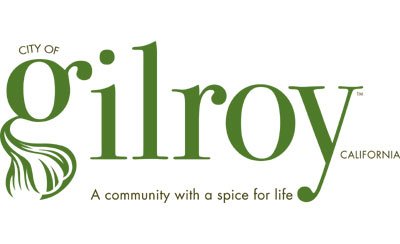Gilroy’s City Council took the first step Monday to allow
residents to vote on whether to repeal binding arbitration for
Gilroy firefighters.
Under binding arbitration, an impartial third-party arbiter
settles differences between the city and the union if either of
them determine that labor negotiations are at an impasse.
Gilroy’s City Council took the first step Monday to allow residents to vote on whether to repeal binding arbitration for Gilroy firefighters.
Under binding arbitration, an impartial third-party arbiter settles differences between the city and the union if either of them determine that labor negotiations are at an impasse. The practice, which was approved by Gilroy voters in 1988, has come under increased scrutiny by the council during the past year as the council and the fire union have endured tense negotiations and an ever-shrinking city budget.
At Monday’s meeting, the council voted 4-3 to create a ballot measure for the November election to possibly repeal binding arbitration.
Councilman Bob Dillon saved the ballot measure – originally proposed by Councilman Perry Woodward – from failure during Monday’s meeting after the council voted 4-3 to shoot down a separate motion by Mayor Al Pinheiro to create a ballot measure that would allow voters to choose whether to eliminate binding arbitration for police, firefighters, both or neither.
Woodward was the swing vote in both instances, saying that he believed that voters should only have the option to repeal binding arbitration for fire services because the International Association of Fire Fighters Local 2805, which represents Gilroy firefighters, is the only city organization that has used the bargaining tool in the past.
Woodward attributed current staffing ratios that require four firefighters per engine to binding arbitration. In turn, those ratios have caused Sunrise Fire Station in northwestern Gilroy to remain closed on a regular basis, he said. However, Councilman Craig Gartman said the staffing ratios did not come as a result of binding arbitration.
Pinheiro and council members Cat Tucker and Bob Dillon all felt binding arbitration should be repealed for police and firefighters alike.
“I’ve always felt it was a bad thing for the city of Gilroy,” Pinheiro said.
However, Dillon decided after Pinheiro’s motion failed that “half a loaf is better than none,” and reintroduced Woodward’s motion, which initially failed to get a second vote.
Pinheiro expressed frustration this week that Woodward only targeted binding arbitration for firefighters.
“Why would you as council member not give the citizens of Gilroy the opportunity to decide?” he said.
Woodward tends to stand on the side of police, Pinheiro said.
Woodward, whose stepfather used to work for the Gilroy Police Department, said he is not universally opposed to binding arbitration. He merely feels that the fire union has abused it. Council members should not be second-guessing Monday’s decision, he added.
“It weakens the action that the council took if there is internal dissension,” he said.
It will cost about $48,000 to submit a resolution, due by Aug. 6, for the November ballot, City Clerk Shawna Freels said. In the meantime, the council will meet in closed session with Local 2805 and then approve language for a resolution in open session, City Administrator Tom Haglund said.
Joshua Valverde, president of Local 2805, said the fire union is still in talks with the city and would not comment on Monday’s decision.
“We don’t want to be reactive,” Valverde said, adding that union representatives plan to meet with city staff today.
Meanwhile, the situation has attracted the notice of the Police Officers Association even though police would not be impacted by the ballot measure. Mitch Madruga, POA president, expressed fear that if voters decide to repeal binding arbitration for fire, then “I’m sure we’ll be fair game after that.”
By law, police officers and firefighters cannot strike. Binding arbitration protects employees from having their wages and benefits arbitrarily cut at the council’s whim, Madruga said. In addition, the city has the right to use binding arbitration as well as the unions, he said.
Monday’s council vote came after the council voted 4-3 in August to not take action on binding arbitration for police and fire services. That vote was in response to a Gilroy Chamber of Commerce push for a ballot measure repealing binding arbitration for all public safety services.
Chamber President Susan Valenta gave a presentation Monday showing that binding arbitration cost the city about $314,000 during fiscal year 2005-06, the last time it was used. The chamber wants the public to at least have a say about whether the practice should continue, she said.
“We want there to be an opportunity for people to go to the ballot and decide,” Valenta said.














